A THING OF BEAUTY for Class 12 ENGLISH
THEME

The poem is a reflection of the beauty of nature and suggests happiness through the nature. The poem makes the point that beauty is everywhere and one should notice it and be joyful.
THEME

The poem is a reflection of the beauty of nature and suggests happiness through the nature. The poem makes the point that beauty is everywhere and one should notice it and be joyful.
EXPLANATION
Kavita prakriti ki sundarta ko darshaati hai or prakriti ke madhyam se khushi ka sujhaav deti hai. Kavita is baat ko spasht krti hai ki sundarta har jagah hai or har vyakti ko isse notice karna chahiye or aanandit hona chahiye.
EXPLANATION
कविता प्रकृति की सुंदरता का प्रतिबिंब है और प्रकृति के माध्यम से खुशी का सुझाव देती है। कविता इस बात को स्पष्ट करती है कि सुंदरता हर जगह है और व्यक्ति को इसे नोटिस करना चाहिए और आनंदित होना चाहिए।
ABOUT THE POET
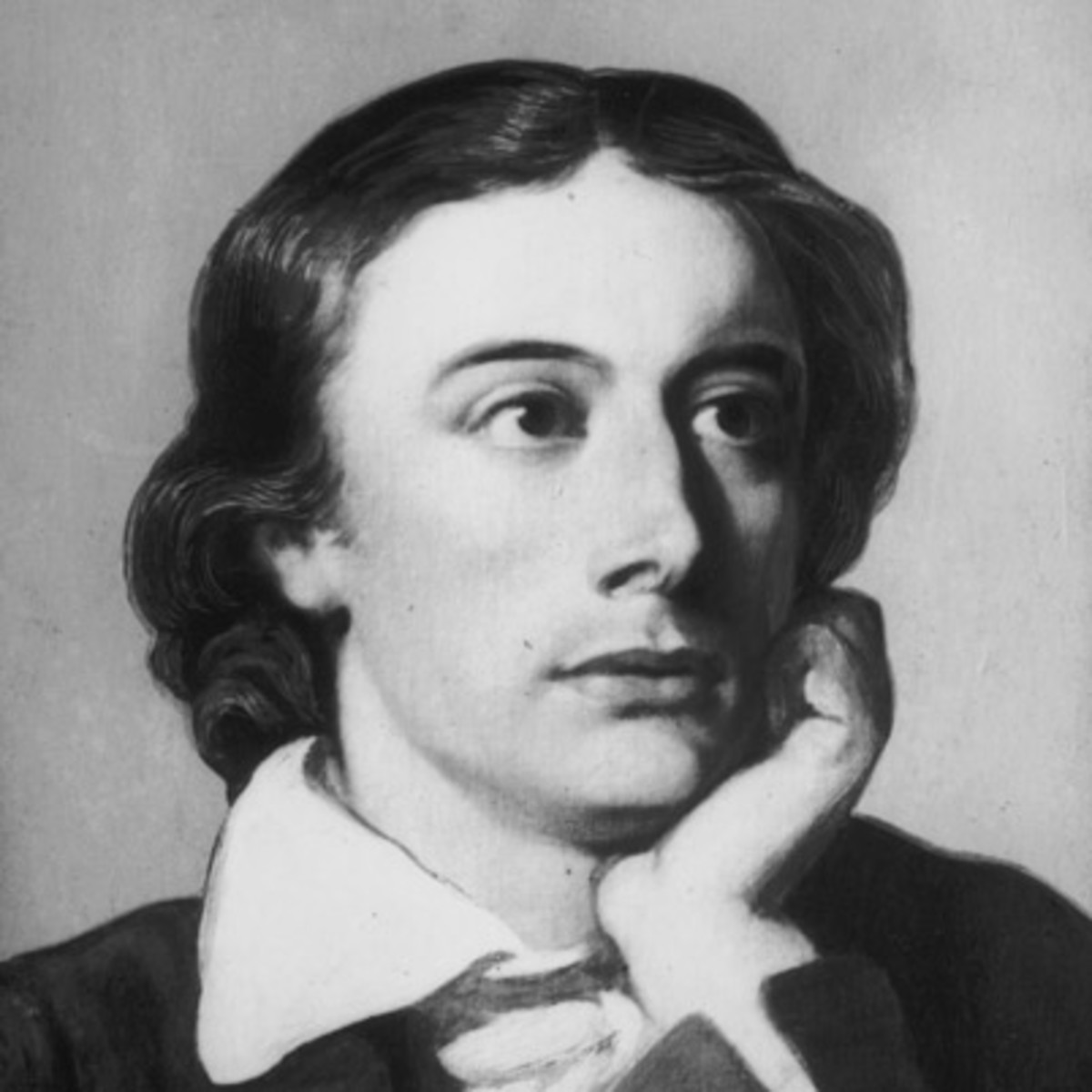
John Keats (1795-1821) was a British Romantic poet. Although trained to be a surgeon, Keats decided to devote himself wholly to poetry. Keats’ secret, his power to sway and delight the readers, lies primarily in his gift for perceiving the world and living his moods and aspirations in terms of language.
ABOUT THE POET

John Keats (1795-1821) was a British Romantic poet. Although trained to be a surgeon, Keats decided to devote himself wholly to poetry. Keats’ secret, his power to sway and delight the readers, lies primarily in his gift for perceiving the world and living his moods and aspirations in terms of language.
EXPLANATION
John Keats ek British romantic poet the. Haalanki yeh ek surgeon banne ki taiyaari kar rahe the, lekin Keats ne khud ko puri tarah se kavitaon ke liye samarpit karne ka faisla kiya. Keats ka rahasya, readers ko impress karna or khush karne ki unki shakti, mukhye roop se duniya ko samajhne or bhasha ke vishay mein apne mood or akankshaaon ko jeene ke liye unke uphaar mein nihit hai.
EXPLANATION
जॉन कीट्स (1795-1821) एक ब्रिटिश रोमांटिक कवि थे। यद्यपि एक सर्जन होने के लिए प्रशिक्षित, कीट्स ने खुद को पूरी तरह से कविता में समर्पित करने का फैसला किया। कीट्स का रहस्य, पाठकों को बोलबाला और प्रसन्न करने की उनकी शक्ति, मुख्य रूप से दुनिया को समझने और भाषा के संदर्भ में उनके मूड और आकांक्षाओं को जीने के लिए उनके उपहार में निहित है।
STANZA 1
A thing of beauty is a joy forever
Its loveliness increases, it will never
Pass into nothingness; but will keep
A bower quiet for us, and a sleep
Full of sweet dreams, and health, and quiet breathing.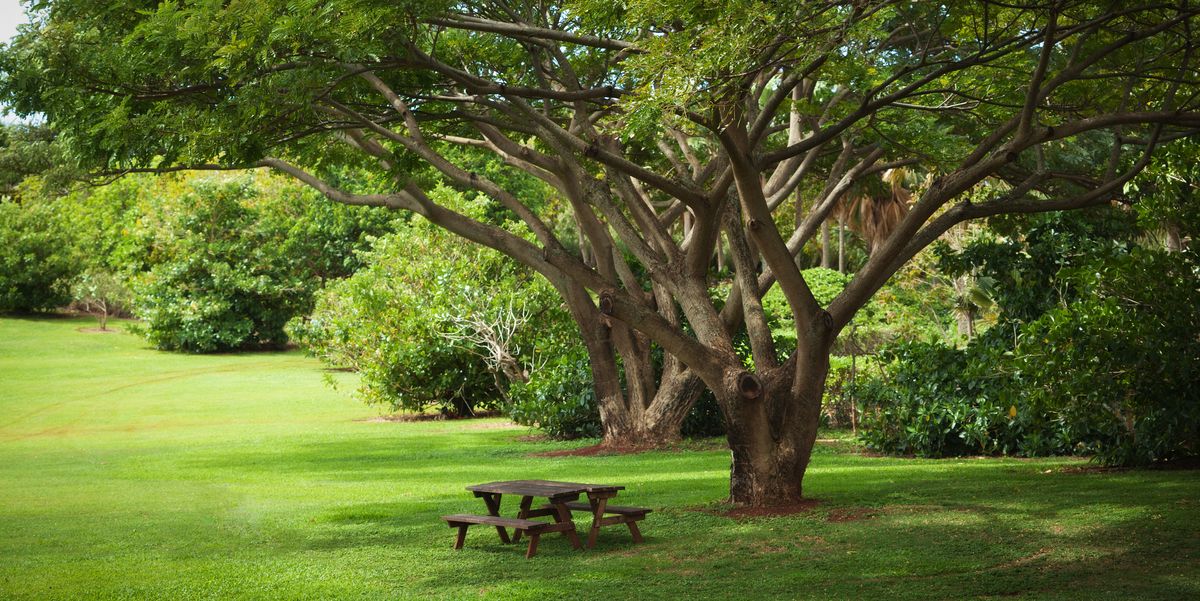
STANZA 1
A thing of beauty is a joy forever
Its loveliness increases, it will never
Pass into nothingness; but will keep
A bower quiet for us, and a sleep
Full of sweet dreams, and health, and quiet breathing.
IMPORTANT WORDS
Bower: A shady place under the tree; कुंज
Loveliness: the quality or fact of being very attractive or beautiful; सौंदर्य
Nothingness: worthlessness or insignificance; अभाव
IMPORTANT WORDS
Bower: A shady place under the tree; कुंज
Loveliness: the quality or fact of being very attractive or beautiful; सौंदर्य
Nothingness: worthlessness or insignificance; अभाव
EXPLANATION
Kavi batate hain ki saundarya(nature ki sundarta) humesha bana rehta hai or yeh kabhi bhi nahi mitt ta. Balki yeh beet te samay ke saath badhta jaata hai. Saundarya ke sambandh mein kavi yeh bataate hain ki veh samay ke sath-sath aur sundar hota rehta hai. Kavi ke liye saundarya ek sundar chaayadaar ped ke samaan hai jiski chaaya mein sabhi praani(living beings) chain ki neend lekar so sakein or ache swasthya ka anand utha sake.
EXPLANATION
कवि कहते हैं कि सौन्दर्य(प्रकृति की सुंदरता) सदा बना रहता है। यह कभी नहीं मिटता। बल्कि यह बीतते समय के साथ बढ़ता जाता है। सौन्दर्य के सम्बन्ध में कवि की धारणा यह है कि वह समय के साथ कभी मिटता नहीं, बल्कि और अधिक सुशोभित(सुन्दर) होता जाता है। कवि के लिए सौन्दर्य एक सुन्दर छायादार वृक्ष के समान है जिसकी छाया में सभी प्राणी चैन की नींद सो सकें और अच्छे स्वास्थ्य का आनंद उठा सकें।
STANZA 2
Therefore, on every morrow, are we wreathing
A flowery band to bind us to the earth,
Spite of despondence, of the inhuman dearth
Of noble natures, of the gloomy days,
Of all the unhealthy and o’er-darkened ways
Made for our searching: yes, in spite of all,
Some shape of beauty moves away the pall
From our dark spirits. 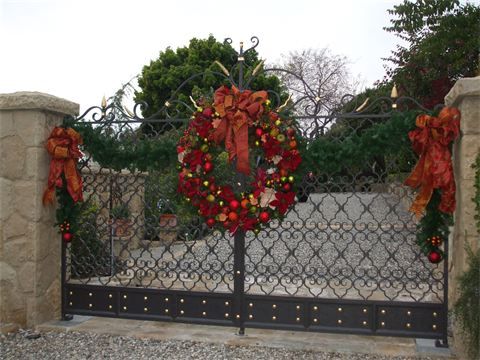
STANZA 2
Therefore, on every morrow, are we wreathing
A flowery band to bind us to the earth,
Spite of despondence, of the inhuman dearth
Of noble natures, of the gloomy days,
Of all the unhealthy and o’er-darkened ways
Made for our searching: yes, in spite of all,
Some shape of beauty moves away the pall
From our dark spirits. 
IMPORTANT WORDS
Morrow(n): Morning; सुबह
Bind: to tie; बांधना
Wreath(n): a circle of flowers and leaves, especially one that you give to the family of somebody who has died; (फूलों और पत्तियों का) पुष्पचक्र, मालाचक्र (विशेषतः शव पर चढ़ाई या अर्पित की गई)
Spite of: In spite of; के बावजूद
Despondence(n): despair; मायूसी
Noble(adj): Good; महान
Dearth(n): a lack of something; not enough of something; किसी वस्तु की कमी; अपर्याप्त
Gloomy(adj): sad ; उदास
Pall(n): a cloth spread over a coffin, hearse, or tomb ; लबादा, आवरण, अंधेरा करना
IMPORTANT WORDS
Morrow(n): Morning; सुबह
Bind: to tie; बांधना
Wreath(n): a circle of flowers and leaves, especially one that you give to the family of somebody who has died; (फूलों और पत्तियों का) पुष्पचक्र, मालाचक्र (विशेषतः शव पर चढ़ाई या अर्पित की गई)
Wreath(v): an arrangement of flowers, leaves, or stems fastened in a ring and used for decoration or for laying on a grave; एक पुष्पांजलि के साथ या के रूप में घेरना या सजाना।
Spite of: In spite of; के बावजूद
Despondence(n): despair; मायूसी
Noble(adj): Good; महान
Dearth(n): a lack of something; not enough of something; किसी वस्तु की कमी; अपर्याप्त
Gloomy(adj): sad ; उदास
Pall(n): a cloth spread over a coffin, hearse, or tomb ; लबादा, आवरण, अंधेरा करना
EXPLANATION
Kavi kehte hain ki har din, yeh aaspaas ki sundarta hi hai jo humein jeene ki bhaavna se bhar deti hai. Yeh sundarta hi hai jo humaare andar jeene ki ichcha paida karti hai, haalanki humaare aaspaas dukhi or cruel log bhi hain. Toh yaha kavi kehna chahte hain ki iss sundarta ke bina prithvi(earth) cruel or udaas logo se bhari rahegi. Yeh veh sundarta hai jo bhagwaan dwara banayi gayi hai, jo humein humaare dilo se udaasi ko door karne mein madad karti hai.
EXPLANATION
कवि कहते हैं कि हर दिन, यह प्रकृति की सुंदरता ही है जो हमें जीने की भावना से भर देती है। यह सुंदरता है जो हमारे अंदर जीने की इच्छा पैदा करती है, हालांकि हमारे आसपास दुखद क्षण और क्रूर लोग हैं। तो यहाँ कवि कहना चाहते है कि सुंदरता के बिना पृथ्वी क्रूर लोगों, उदास और उदास क्षणों से भर जाएगी। यह वह सुंदरता है जो भगवान द्वारा बनाई गई है, जो हमें हमारे दिलों से उदासी को दूर करने में मदद करती है।
STANZA 3
Such the sun, the moon,
Trees old, and young, sprouting a shady boon
For simple sheep; and such are daffodils
With the green world they live in; and clear rills
That for themselves a cooling covert make
‘Gainst the hot season; the mid forest brake,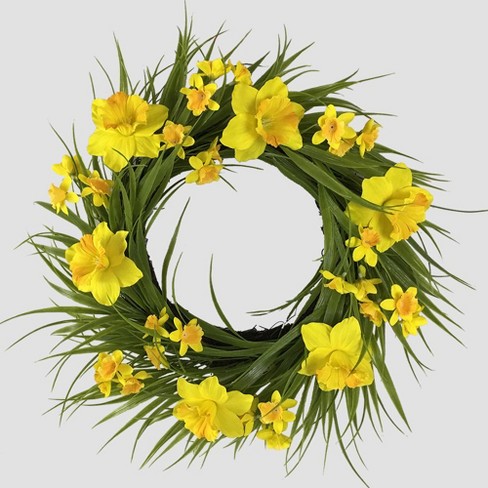
STANZA 3
Such the sun, the moon,
Trees old, and young, sprouting a shady boon
For simple sheep; and such are daffodils
With the green world they live in; and clear rills
That for themselves a cooling covert make
‘Gainst the hot season; the mid forest brake,
IMPORTANT WORDS
Boon(n): blessing; वरदान
Rills(n): a small stream; छोटी नदी
Brake(n): A thicket; झाड़ी
Musk-rose(n): wild rose; कस्तूरी गुलाब
Covert(n): disguised, latent, a thicket in which one can hide; प्रच्छन्न
IMPORTANT WORDS
Boon(n): blessing; वरदान
Rills(n): a small stream; छोटी नदी
Brake(n): A thicket; झाड़ी
Musk-rose(n): wild rose; कस्तूरी गुलाब
Covert(n): disguised, latent, a thicket in which one can hide; प्रच्छन्न
EXPLANATION
Yaha kavi unn sundar cheezo ke baare mein batate hain jo prithvi par maujood hain. Ye surya, chandramaa, phool(khaaskar Daffodils) or nadiyan hain. Kavi kehte hain ki ye sabhi cheezein prithvi dwara sabhi praaniyon(living beings) ko diye gaye aashirwaad ke samaan hai. Veh aage batate hain ki jaise ped humein apni chaaya pradaan karte hain, phool apni sundarta ke sath or nadiyan tez garmi ke dauran apni thandak pradaan karti hain. Yeh sabhi nature ki sundar cheezein hain jo humaare liye ek vardaan ki tarah hain.
EXPLANATION
यहां कवि उन सुंदर चीजों का वर्णन करते हैं जो पृथ्वी पर मौजूद हैं। ये सूर्य, चंद्रमा, पेड़, फूल (डैफोडील्स) और नदियाँ हैं। कवि कहते हैं कि ये सभी चीजें पृथ्वी द्वारा सभी प्राणियों को दिए गए आशीर्वाद के समान हैं। वह आगे वर्णन करते हैं कि पेड़ हमें अपनी छाया प्रदान करते हैं, फूल अपनी सुंदरता के साथ और नदियाँ तेज़ गर्मी के दौरान अपनी शीतलता प्रदान करती हैं। ये सभी प्रकृति की वो सुन्दर चीज़ें हैं जो हमारे लिए वरदान के समान हैं।
STANZA 4
Rich with a sprinkling of fair musk-rose blooms;
And such too is the grandeur of the dooms
We have imagined for the mighty dead;
All lovely tales that we have heard or read;
An endless fountain of immortal drink,
Pouring unto us from the heaven’s brink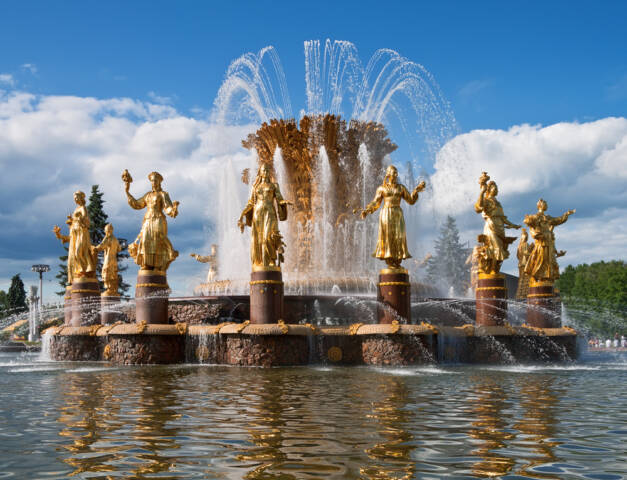
STANZA 4
Rich with a sprinkling of fair musk-rose blooms;
And such too is the grandeur of the dooms
We have imagined for the mighty dead;
All lovely tales that we have heard or read;
An endless fountain of immortal drink,
Pouring unto us from the heaven’s brink
IMPORTANT WORDS
Grandeur(n): splendor and impressiveness, large; शान
Doom(n): Death; कयामत
Mighty(adj): powerful; शक्तिमान
Fountain(n): waterfall; झरना
Immortal drink(n): a beverage that make you immortal (somebody who does not die); अमर पेय
IMPORTANT WORDS
Grandeur(n): splendor and impressiveness, large; शान
Doom(n): Death; कयामत
Mighty(adj): powerful; शक्तिमान
Fountain(n): waterfall; झरना
Immortal drink(n): a beverage that make you immortal (somebody who does not die); अमर पेय
EXPLANATION
Kavi aage prithvi(earth) par maujood or adhik sundar cheezon ka varnan karte hain. Jaise ki sundar kastoori gulaab jinki sugandh(smell) bahut achi hoti hai. Fir veh unn bahadur yoddhaon ki kahaniya batate hain jinhone apne desh ya maanavta(humanity) ke liye khud ko sacrifice(balidaan) kiya tha. Unka kehna hai ki yeh khoobsurat cheezein hum sabhi ke liye bhagwaan ki den hai. Yeh sab kuch bhagwaan dwara diye gaye amrit ki tarah hai or ye vo sundar cheezein hain jo amar hain or humaare jeevan mein itne dukho ke baad bhi humein iss dharti par rehne ka kaaran deti hai.
EXPLANATION
कवि आगे पृथ्वी पर मौजूद और अधिक सुंदर चीजों का वर्णन करते हैं। जैसे सुंदर कस्तूरी गुलाब जिनकी बहुत अच्छी सुगंध होती है। फिर वह उन बहादुर योद्धाओं की कहानियों का वर्णन करते हैं जिन्होंने अपने देश या मानवता के लिए अपने प्राण न्यौछावर कर दिए। उनका कहना है कि ये खूबसूरत चीजें हम सभी के लिए भगवान की देन हैं। वे हमें भगवान द्वारा दिए गए अमृत की तरह हैं और ये वे सुन्दर चीज़ें हैं जो अमर हैं और हमारे जीवन में इतने दुखों के बावजूद हमें इस धरती पर रहने का कारण देती हैं।
SUMMARY
SUMMARY
EXPLANATION
EXPLANATION
LITERARY DEVICES
LITERARY DEVICES
QUESTION ANSWERS
1. List the things of beauty mentioned in the poem.
ANSWER : Everything in nature is a thing of beauty and a source of pleasure. Some of them are: the sun, the moon, old and young trees, daffodil flowers, small streams with clear water, mass of ferns and the blooming musk-roses.
2. List the things that cause suffering and pain.
ANSWER : There are some sources of pain in this world. Some of them are : lack of goodness, lack of noble spirit, malice and disappointment, sadness, hopelessness, sad days, darkened spirits. A thing of beauty lifts our dampened spirits.
3. What does the line, ‘Therefore are we wreathing a flowery band to bind us to earth’ suggest to you?
ANSWER : Every morning when we wake up and look at all the beautiful things around us, it binds us with a flowery band to this earthly life. This wreath of flowery band gives us courage to stay in this earthly life against the harmful sadness, against the savage lack of nobility and good people, against bad days that make us feel sad and hopeless, against all the unhealthy and extremely dark ways that make us depressed and seek true happiness.
4. What makes human beings love life in spite of troubles and sufferings?
ANSWER : It is a thing of beauty that makes us joyful forever. It lifts our dampened spirits and help us cherish our life. When we see some shape of a beauty in nature and admire it, it takes our mind away from the sad days, or the dark thoughts that linger in our mind. It is because of this marvelous creation and immortal beauty that human beings love life and are bound to it through the flowery band of beauty.
5. Why is ‘grandeur’ associated with the ‘mighty dead’?
ANSWER : The mighty dead were very powerful and dominating persons during their own times. Their achievements made them ‘mighty’ and great. Their noble works dazzle our eyes. We imagine that such mighty dead forefathers will attain more grandeur on the doomsday. Hence ‘grandeur’ is associated with the ‘mighty dead’.
6. Do we experience things of beauty only for short moments or do they make a lasting impression on us?
ANSWER : The poem begins with "A thing of beauty is a joy forever". This shows that according to Keats, a thing of beauty makes a lasting impression on us. We are forever overjoyed because of it. Its loveliness and beauty keeps on increasing and the happiness never fades.
7. What image does the poet use to describe the beautiful bounty of the earth?
ANSWER : The poet uses the image of 'the immortal drink pouring unto us from heaven's brink" to describe the beautiful, unending bounty of the Earth. The beauty of the nature is mesmerizing and is perpetual. It is immortal. It will leave a lasting impression and be forever inscribed in one's memory and one's surroundings.
QUESTION ANSWERS
1. List the things of beauty mentioned in the poem.
ANSWER : Everything in nature is a thing of beauty and a source of pleasure. Some of them are: the sun, the moon, old and young trees, daffodil flowers, small streams with clear water, mass of ferns and the blooming musk-roses.
2. List the things that cause suffering and pain.
ANSWER : There are some sources of pain in this world. Some of them are : lack of goodness, lack of noble spirit, malice and disappointment, sadness, hopelessness, sad days, darkened spirits. A thing of beauty lifts our dampened spirits.
3. What does the line, ‘Therefore are we wreathing a flowery band to bind us to earth’ suggest to you?
ANSWER : Every morning when we wake up and look at all the beautiful things around us, it binds us with a flowery band to this earthly life. This wreath of flowery band gives us courage to stay in this earthly life against the harmful sadness, against the savage lack of nobility and good people, against bad days that make us feel sad and hopeless, against all the unhealthy and extremely dark ways that make us depressed and seek true happiness.
4. What makes human beings love life in spite of troubles and sufferings?
ANSWER : It is a thing of beauty that makes us joyful forever. It lifts our dampened spirits and help us cherish our life. When we see some shape of a beauty in nature and admire it, it takes our mind away from the sad days, or the dark thoughts that linger in our mind. It is because of this marvelous creation and immortal beauty that human beings love life and are bound to it through the flowery band of beauty.
5. Why is ‘grandeur’ associated with the ‘mighty dead’?
ANSWER : The mighty dead were very powerful and dominating persons during their own times. Their achievements made them ‘mighty’ and great. Their noble works dazzle our eyes. We imagine that such mighty dead forefathers will attain more grandeur on the doomsday. Hence ‘grandeur’ is associated with the ‘mighty dead’.
6. Do we experience things of beauty only for short moments or do they make a lasting impression on us?
ANSWER : The poem begins with "A thing of beauty is a joy forever". This shows that according to Keats, a thing of beauty makes a lasting impression on us. We are forever overjoyed because of it. Its loveliness and beauty keeps on increasing and the happiness never fades.
7. What image does the poet use to describe the beautiful bounty of the earth?
ANSWER : The poet uses the image of 'the immortal drink pouring unto us from heaven's brink" to describe the beautiful, unending bounty of the Earth. The beauty of the nature is mesmerizing and is perpetual. It is immortal. It will leave a lasting impression and be forever inscribed in one's memory and one's surroundings.
EXTRA QUESTIONS
1. Mention any four things of beauty that add joy to our life.
ANSWER: The sun, the moon, the leaves, daffodils, simple sheep, transparent rills, the mid forest brake, musk roses, and the mighty dead are all things of beauty that bring us joy.
2. Which objects of nature does Keats mention as a thing of beauty?
ANSWER: The sun, the moon, trees, simple sheep, and flowers such as daffodils, clear rills, and musk roses are among the natural beauties listed by Keats.
3. Mention any two things which cause pain and suffering.
ANSWER: Gloomy days are the things that cause misery and pain. Humans are depressed on a general level. There isn't much in the way of noble nature. Our existence on this planet would have been difficult if it hadn't been for the beautiful stuff.
EXTRAQUESTIONS
1. Mention any four things of beauty that add joy to our life.
ANSWER: The sun, the moon, the leaves, daffodils, simple sheep, transparent rills, the mid forest brake, musk roses, and the mighty dead are all things of beauty that bring us joy.
2. Which objects of nature does Keats mention as a thing of beauty?
ANSWER: The sun, the moon, trees, simple sheep, and flowers such as daffodils, clear rills, and musk roses are among the natural beauties listed by Keats.
3. Mention any two things which cause pain and suffering.
ANSWER: Gloomy days are the things that cause misery and pain. Humans are depressed on a general level. There isn't much in the way of noble nature. Our existence on this planet would have been difficult if it hadn't been for the beautiful stuff.
PREVIOUS YEAR QUESTIONS
1. Write a brief summary of the poem ‘A Thing Of Beauty.’
ANSWER: According to the author, it is a thing of beauty that brings joy indefinitely. The poet then goes on to list several things that are beautiful. The sun, the moon, beautiful flowers, young trees, and simple sheep, he says, are all beautiful things. According to the poet, there is so much sorrow on this planet that life will be unbearable without some kind of beauty. It's one thing or another that's beautiful. It is something beautiful that connects us to the planet. The poet then goes on to characterize the earth's mighty dead. These individuals have given their lives for the sake of humanity. They will receive their just reward on the day of judgment, according to the poet. The poet compares the things of beauty to a fountain on the edge of heaven pouring out everlasting drink.
2. How can ‘mighty dead’ be things of beauty?
ANSWER: Those who lay down their lives for the betterment of mankind are known as the "mighty dead." We are ecstatic when we read their stories. These valiant dead, according to the author, would be honored by God Himself on the Day of Judgment.
3. What, according to Keats, casts a shadow of doom over our gloomy spirits? What is the procedure for removing it?
ANSWER: According to Keats, there is universal sadness on this planet. The life of a man is full of disappointments and sorrows. Our dark souls tend to be shrouded in a shroud of disappointment. Only the presence of beauty, in some form or another, may lift this gloom.
PREVIOUS YEAR QUESTIONS
1. Write a brief summary of the poem ‘A Thing Of Beauty.’
ANSWER: According to the author, it is a thing of beauty that brings joy indefinitely. The poet then goes on to list several things that are beautiful. The sun, the moon, beautiful flowers, young trees, and simple sheep, he says, are all beautiful things. According to the poet, there is so much sorrow on this planet that life will be unbearable without some kind of beauty. It's one thing or another that's beautiful. It is something beautiful that connects us to the planet. The poet then goes on to characterize the earth's mighty dead. These individuals have given their lives for the sake of humanity. They will receive their just reward on the day of judgment, according to the poet. The poet compares the things of beauty to a fountain on the edge of heaven pouring out everlasting drink.
2. How can ‘mighty dead’ be things of beauty?
ANSWER: Those who lay down their lives for the betterment of mankind are known as the "mighty dead." We are ecstatic when we read their stories. These valiant dead, according to the author, would be honored by God Himself on the Day of Judgment.
3. What, according to Keats, casts a shadow of doom over our gloomy spirits? What is the procedure for removing it?
ANSWER: According to Keats, there is universal sadness on this planet. The life of a man is full of disappointments and sorrows. Our dark souls tend to be shrouded in a shroud of disappointment. Only the presence of beauty, in some form or another, may lift this gloom.
GLOSSARY
Bower: A shady place under the tree; कुंज
Loveliness: the quality or fact of being very attractive or beautiful; सौंदर्य
Nothingness: worthlessness or insignificance; अभाव
Morrow(n): Morning; सुबह
Bind: to tie; बांधना
Wreath(n): a circle of flowers and leaves, especially one that you give to the family of somebody who has died; (फूलों और पत्तियों का) पुष्पचक्र, मालाचक्र (विशेषतः शव पर चढ़ाई या अर्पित की गई)
Spite of: In spite of; के बावजूद
Despondence(n): despair; मायूसी
Noble(adj): Good; महान
Dearth(n): a lack of something; not enough of something; किसी वस्तु की कमी; अपर्याप्त
Gloomy(adj): sad ; उदास
Pall(n): a cloth spread over a coffin, hearse, or tomb ; लबादा, आवरण, अंधेरा करना
Boon(n): blessing; वरदान
Rills(n): a small stream; छोटी नदी
Brake(n): A thicket; झाड़ी
Musk-rose(n): wild rose; कस्तूरी गुलाब
Covert(n): disguised, latent, a thicket in which one can hide; प्रच्छन्न
Grandeur(n): splendor and impressiveness, large; शान
Doom(n): Death; कयामत
Mighty(adj): powerful; शक्तिमान
Fountain(n): waterfall; झरना
Immortal drink(n): a beverage that make you immortal (somebody who does not die); अमर पेय
GLOSSARY
Bower: A shady place under the tree; कुंज
Loveliness: the quality or fact of being very attractive or beautiful; सौंदर्य
Nothingness: worthlessness or insignificance; अभाव
Morrow(n): Morning; सुबह
Bind: to tie; बांधना
Wreath(n): a circle of flowers and leaves, especially one that you give to the family of somebody who has died; (फूलों और पत्तियों का) पुष्पचक्र, मालाचक्र (विशेषतः शव पर चढ़ाई या अर्पित की गई)
Spite of: In spite of; के बावजूद
Despondence(n): despair; मायूसी
Noble(adj): Good; महान
Dearth(n): a lack of something; not enough of something; किसी वस्तु की कमी; अपर्याप्त
Gloomy(adj): sad ; उदास
Pall(n): a cloth spread over a coffin, hearse, or tomb ; लबादा, आवरण, अंधेरा करना
Boon(n): blessing; वरदान
Rills(n): a small stream; छोटी नदी
Brake(n): A thicket; झाड़ी
Musk-rose(n): wild rose; कस्तूरी गुलाब
Covert(n): disguised, latent, a thicket in which one can hide; प्रच्छन्न
Grandeur(n): splendor and impressiveness, large; शान
Doom(n): Death; कयामत
Mighty(adj): powerful; शक्तिमान
Fountain(n): waterfall; झरना
Immortal drink(n): a beverage that make you immortal (somebody who does not die); अमर पेय
